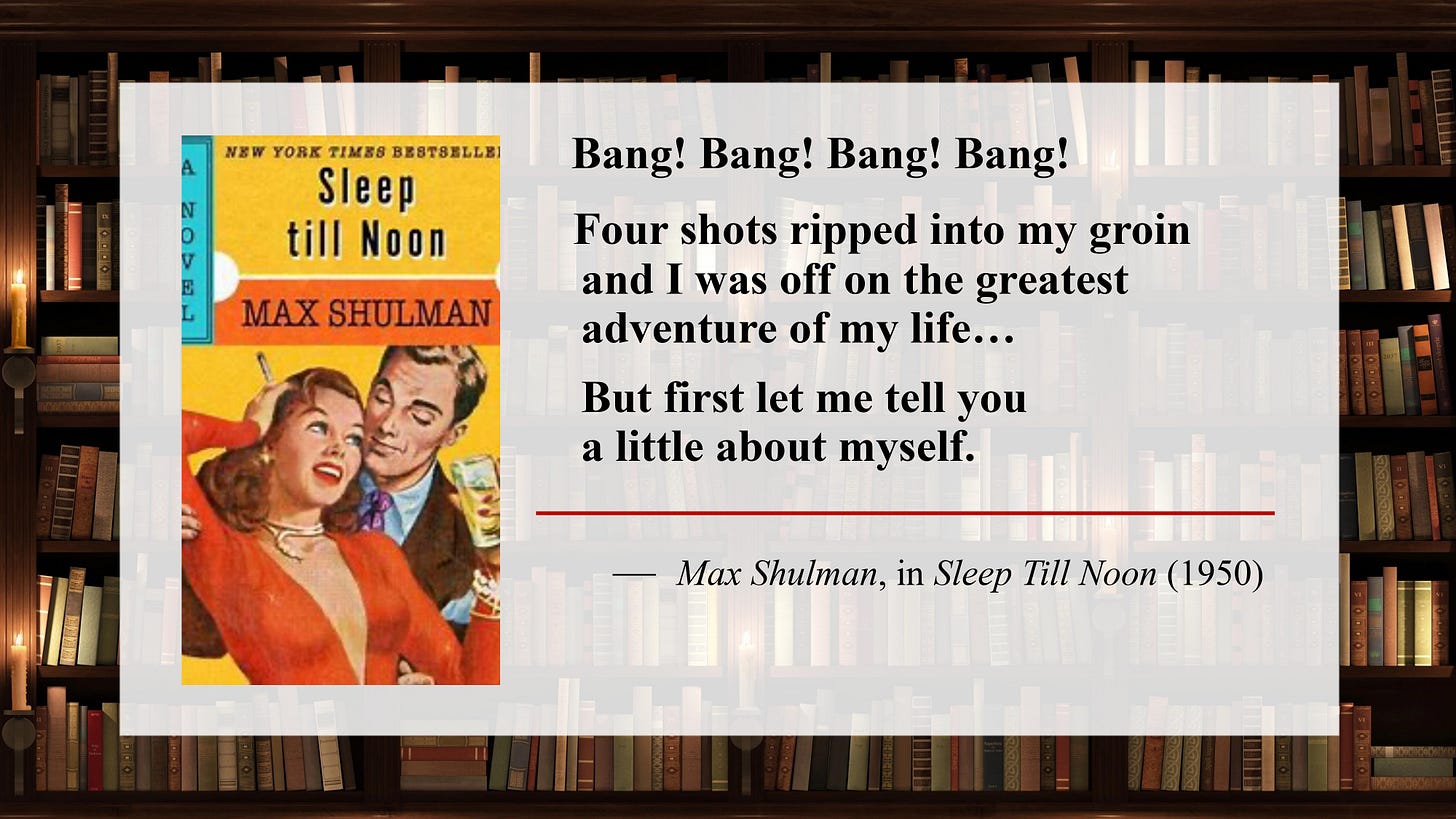Dr. Mardy's Quotes of the Week ("Adventure")
December 3—8, 2023 | THIS WEEK'S THEME: “Adventure”
Opening Line of the Week
Opening lines that start off one way, and then quickly dart in a completely unexpected direction are a staple of writers who want to snare the attention of readers—and this one is perfectly executed.
For nearly 2,000 memorable opening lines from every genre of world literature, go to www.GreatOpeningLines.com. And if you’d like …
Keep reading with a 7-day free trial
Subscribe to Dr. Mardy's Substack to keep reading this post and get 7 days of free access to the full post archives.



